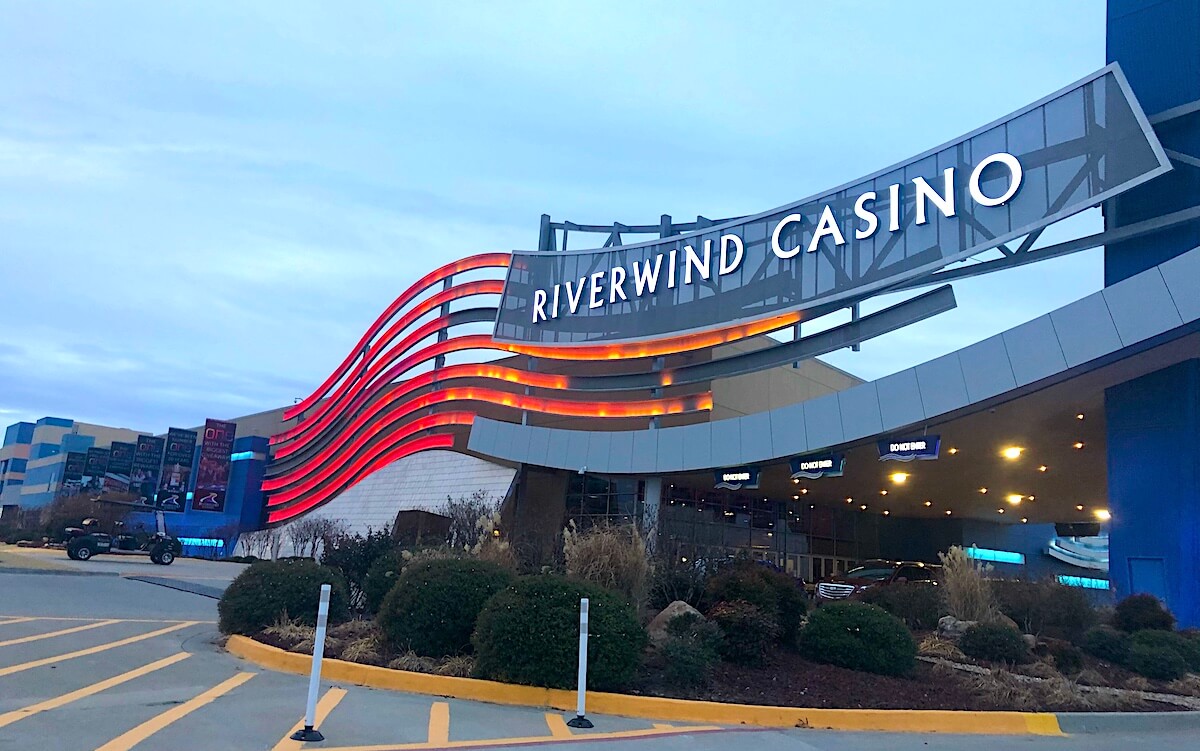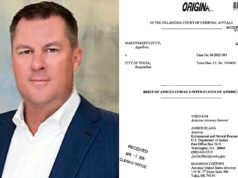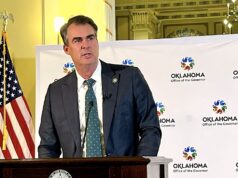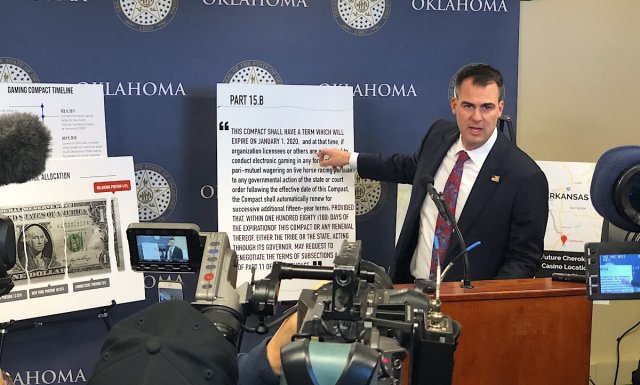

(Update: Gov. Kevin Stitt released his offer of a gaming extension to tribal leaders around 4 p.m. Wednesday, Dec. 18, roughly 24 hours after the publication of this story. The date of extension offered is Aug. 31, 2020, and a full copy of his letter can be found here.)
Oklahoma Gov. Kevin Stitt announced today he will be asking tribal leaders to sign an extension of the current gaming compact. While he said the term of his proposed gaming extension and other details are yet to be worked out, Stitt said such an agreement would provide certainty for casino employees, vendors and patrons come Jan. 1.
“I want business to continue as usual as we resolve this dispute,” Stitt said at a Capitol press conference. “I want the banks, the alcohol vendors and the workers to have surety. (…) I also want to ensure that the revenues of the state that the state receives continue to be available to fund the state services that we provide to all Oklahomans.
“We do not want gaming to be illegal, and we do not want vendors to be operating illegally.”
Matthew Morgan, chairman of the Oklahoma Indian Gaming Association, held his own press conference outside the Capitol after Stitt spoke. With a half-dozen TV camera wireless microphones clipped to his coat, Morgan declined to take a position on Stitt’s proposed gaming extension.
“I think tribal leadership would be open to all conversations, but we haven’t seen it,” Morgan said. “Apparently, the document hasn’t even been written yet. So it’s hard to comment on something you haven’t seen.”
Morgan, who also leads gaming for the Chickasaw Nation, reiterated his belief that triggers — such as action taken by the Oklahoma Horse Racing Commission — have already been met to make the Oklahoma Model Tribal Gaming Compact automatically renew Jan. 1. Stitt again contended that the compact does not renew owing to his request to renegotiate.
“Overall, it was just a very disappointing press conference from the governor, and I had hoped to see better leadership from him on this issue,” Morgan said.
Stitt, on the other hand, said he has been meeting with tribal leaders directly over the past month.
“Since my last press conference, I’ve been meeting with tribal leaders across the state who want to negotiate a new compact. They have expressed their concerns about the current one and the fact that it expires,” Stitt said. “The attorney general has also met with a different group of tribal leaders, and he has worked really hard to discuss fees, but also opportunities that would improve and expand and make the gaming industry more competitive with the emerging markets in the states around us.”
Neither Stitt nor Morgan elaborated on who has been meeting with the state’s governor.
“One thing is abundantly clear from our negotiations: The needs of the Oklahoma tribes are not united,” Stitt said. “Contrary to what the TV commercials and some of the newspapers are reporting, the tribes are not united on this issue.”
Stitt said that complicates negotiations.
“The state cannot reach an agreement that addresses the needs of every single tribe in the state in the next 18 days. That is obvious to me,” Stitt said. “But if we do not take action, all Class III gaming activity will be illegal on Jan. 1, 2020. This creates tremendous uncertainty.”
Morgan said that is the governor’s fault.
“I don’t see anyone offering this type of uncertainty other than Gov. Stitt,” Morgan said.
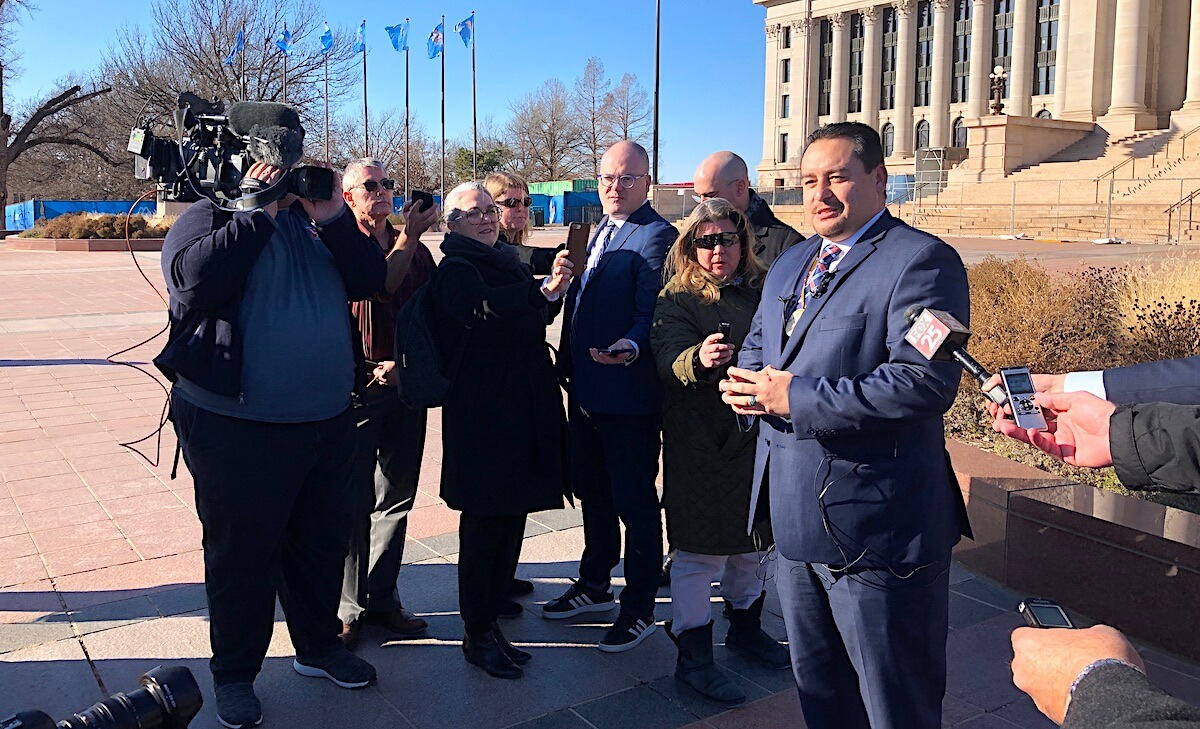
Hunter withdraws from gaming compact negotiations
Monday, Oklahoma Attorney General Mike Hunter sent Stitt a letter withdrawing as lead negotiator on behalf of the state.
“Pursuant to our recent conversations, I am withdrawing from further participation in the tribal gaming compact negotiations,” Hunter wrote. “I look forward to and am committed to working with you in the future on any and all matters within my purview as chief legal officer of the state of Oklahoma.”
Hunter communications director Alex Gerszewski sent NonDoc a statement expanding upon the letter.
RELATED
‘The ultimate cost’: Oklahoma faces problem gambling, treatment limitations by Drew Hutchinson
“Under Article VI, Section 8 of the Oklahoma Constitution and 74.0.S. S1221, the governor is given authority to enter into agreements with the federally recognized tribes,” Gerszewski said by email. “Accordingly, the attorney general and the governor have agreed to return the lead agency over tribal gaming compact negotiations to the Governor’s Office. This will allow the governor and his legal counsel to negotiate directly with tribes to hopefully develop a path forward.”
Stitt said he and Hunter are on the same page, despite speculation to the contrary.
“We both want what is best for the state of Oklahoma, and we want a resolution that creates a win-win for the people of Oklahoma and the tribes of all the state,” Stitt said.
On Nov. 14, Stitt and tribal gaming leaders traded press conferences in the same manner they did Tuesday, 33 days later. The two sides have been at a virtual impasse over whether the compacts automatically renew since the summer.









